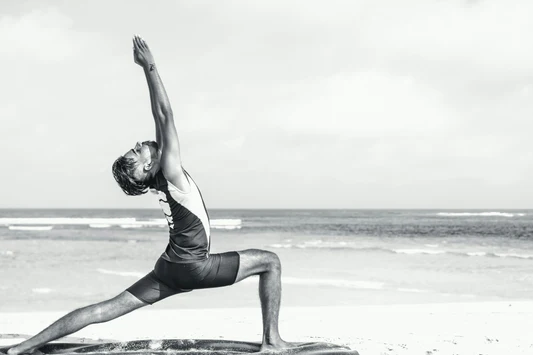Special guest post by Rebecca Hammond
If you are a runner or someone trying to get in shape, particularly female, but gender doesn’t discriminate too much, you probably have some degree of feeling that you are too heavy or feeling guilty about that thing you ate or wishing you could just lose some weight already.
Why Self Control Is Hard For Endurance Athletes
Why is it so difficult? If you just eat less and/or exercise more, you will lose weight, right?
Well, yes, to a certain degree. There are ways in which your body will re-equilibrate its rate of energy utilization to match the amount that you eat, meaning, if you eat way less for a prolonged period, your body will learn how to use less energy (i.e., burn fewer calories) to get through the day.
You can understand how this might’ve been advantageous back in the day (or even today, in certain contexts that probably don’t apply to you if you’re reading this article). This increased “efficiency” will carry into exercise as well, but it can’t completely mitigate the calories you burn exercising, which is why exercise becomes key to keeping weight off. But I’m guessing lack of exercise isn’t your problem, either, if you’re someone who reads EndurElite blog posts.
Having Body Dysmorphia Does Not Reflect The Reality Of Your Body
You might not even really have a problem. There are times that even I, who has and has always had a six pack, pinch the fat around my belly or my thighs, look in the mirror and focus on the flaws, feel guilty for eating that bowl of cereal late at night or stuffing myself on the snacks at that med school mixer.
The point being, having body dysmorphia does not reflect the reality of your body – it reflects how you perceive your body. I can weigh the exact same and see myself as fat one day, have a set of good workouts, and see myself as lean (at the same weight) the next day. I look, to me, the way I feel about myself.
Keep this in mind when you are worrying about your weight.
Is Weighing Less Advantageous In Sports?
This is not to say that weighing slightly less can be advantageous to your sports goals. I’d say that loving your body and treating it well at 150lbs is better than starving yourself and feeling guilty and stressed about food all the time and weighing 145lbs. Still, you have to carry your weight around when running, so in general, weighing less can be helpful.
And now, the focus of this blog post: feeling bad about yourself, and feeling guilty when you eat foods you’re trying to avoid, make it harder to resist overeating and eating unhealthy foods.
Why?
The Stanford Marshmallow Test And Delayed Gratification
Have you heard of the Stanford marshmallow experiment? I listened to part of this book about it while on the airplane last month and it inspired this post (hurray for in-flight entertainment!). It was a series of studies in the 60’s-‘70’s by a psychologist at Stanford.
He tested children’s ability to resist eating a marshmallow in front of them under different conditions. The researchers had the little kid sit down at a table with a fluffy white marshmallow (or another tasty treat) in front of them, and told them that if they waited and did not eat the marshmallow, they would get four marshmallows (or something like that) afterward. Then the researcher left the room and saw how long the kid would wait, and what the kid would do while waiting.
Many kids that were able to wait for long periods sang songs or played games to distract themselves. Some kids simply couldn’t resist and gobbled up the marshmallow. The researchers tried some different strategies to see if they would affect how long the kids could wait.
They told them to think of the marshmallow as a white cloud, describing the treat with non-food descriptors, or to pretend like the marshmallow was in a picture, with an imaginary frame around it, and the kids that previously couldn’t wait 60 sec could now wait 15min. Then they told the kids to imagine the ooey gooey sweet insides, and even the ones that could wait previously couldn’t wait.
Ok, so that tells you a few strategies – the most practical being that if you keep busy with other things (like the kids did who sang songs or played games) it’s a lot easier to not binge on cookies.
But what I want to highlight: the researchers also tried two other conditions. They told the kids they weren’t good at waiting or to think of a time they were bad, and the kids were far less likely to be able to wait. They praised kids on their ability to work hard or told them to think of a happy memory, and the kids were able to wait much longer.
When the kids were feeling bad, it was more difficult to resist eating the marshmallow. This is, of course, a result from an experiment performed on children, and is far from a perfect correlate for adults trying to eat less, but here is the crude interpretation for our purposes: if you eat one cookie and feel bad about yourself, it’s a lot harder to not eat the second one. If you look at yourself and call yourself fat, it’s going to be harder to resist the temptation of eating extra.
As to the potential mechanisms, we don’t totally know; I won’t go into to much detail but will provide some very basic concepts that you can feel free to research further if so inclined.
- First, the same brain area implicated in fear and anxiety – the small, almond-shaped region called the amygdala – plays an important role in reward-seeking (read: hunger) behaviors (for example, this 2017 paper by Kim et al published in the journal Neuron).
- Another experiment (Verma et al 2016) suggested (among other things) that a particular receptor in the amygdala of mice was necessary for both hunger and fear extinction (the mouse's ability to stop being afraid once afraid), suggesting a tie between hunger and regulating anxiety.
- The amygdala also appears to play a role in guilt, along with the frontal and temporal lobes (other parts of the brain, the frontal lobe, interestingly, also playing a key role in regulating impulsivity - for example, resisting the immediate temptation of eating a marshmallow when you know that you will get four marshmallows if you wait).
Saying that certain parts of the brain relate to certain feelings is pretty simplistic and also a bit silly since the brain is more about connections than regions. Still, we can say that hunger is very much tied up with anxiety and guilt.
I’ve experienced this myself. I’m an anxious person, and when I’m feeling anxious I tend to eat for comfort. When I’m going through a body dysmorphic period, where I feel that I should lose weight (yes, even I experience body dysmorphia!), I naturally feel guilty for eating when I’m not hungry. This makes me feel worse than I already did, and I eat more until I’ve killed that pint of ice cream or whatever it is and am left with a big old tummy ache.
In other words, my guilt about eating made it so that my brain needed something to feel better, and that thing to me was more of the eating, since I was eating to feel better in the first place. It turns out it’s not even just the direct pleasure of chewing and tasting the food - this study by Oudenhove et al (2011) showed that intragastric infusion of fatty acids (meaning, putting fatty acids into people’s stomachs with a tube) lessens feelings of sadness both with respect to the subjects’ experience (“I feel less sad”) and what their brains actually show in a functional MRI scan (a loose measure of brain activity).
So there’s a real, concrete reason why people reach for the chocolate or the fried food when they’re feeling sad – it helps them feel less sad – which is also the real, concrete reason you should not make yourself feel sadder by hating on yourself when you’re trying to lose weight.
Ok. I feel like I’ve beaten this point to a pulp. Do note that all the talk I do about the parts of the brain that mediate different feelings is somewhat bull-sh*tty in that it’s all a lot more complex than one part of the brain is responsible for a feeling. Feelings are more about neuron firing patterns than clusters of neurons situated in particular parts of the brain. At least, that’s how I understand it ;)
The moral? It’s not that you should try to eat less or that you should try to lose weight – it’s that if you are trying to lose weight, feeling bad about yourself is counterproductive. Punishing yourself for eating pie makes it directly more difficult to resist that next piece, and to resist eating the Snickers bar an hour later, and etc. Your brain wants to feel good; when you make it feel bad by thinking negative thoughts, it will search desperately for some way of lessening that sadness, and as we’ve seen, eating can do just that.
Plus, it sucks to be mean to yourself. I’ve practiced feeling sorry for myself lately. Not in like the wallowing in self-pity sort of way, but the “awww, you’re having a tough time! You poor thing” *caring expression* sort of way. This enables me to be nice to myself, which in turn lets me not only be less sad as a direct response to a decrease in negative thoughts about myself but also enables me to do things for the pure purpose of feeling good.
Find ways of making yourself feel good that aren’t just eating – like the little kids singing to themselves to keep from eating the marshmallow. And even if the comfort still is the food, allow yourself to be comforted by it. Eat the cake, and feel good, and say, “aww, you poor thing! Have some nice cake and feel better.” Relax into it. Then the cake will actually help to make you feel better rather than triggering a whole cycle of feeling bad and needing to eat more and more cake.
Praise yourself when you’re able to make healthy decisions
Imagine yourself in one hour, and how happy you’ll be with your choice. This way, instead of having negative feelings (which lead to more hunger) drive your healthy choices, you have positive feelings (which serve to increase impulse control and just plain feel good) helping you out.
When you do slip up and eat unhealthy foods, acknowledge any bad feelings you might be having, and realize, hey, you’re a nice little mammal, you just want comfort. And allow yourself to be comforted. We all just want to feel good, so let’s stop going out of our way to make ourselves feel bad!


